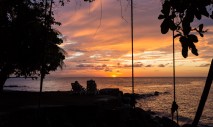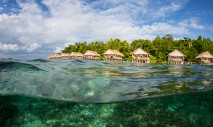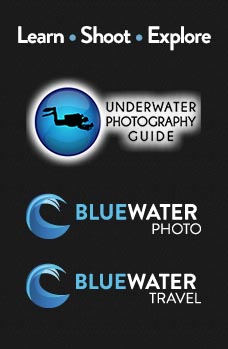There is an incredible amount of planning that goes into a long dive trip. The first step is to do the research on the place to go and time of year, followed by working through the itinerary. This is where a dive travel agency like Bluewater Travel comes in handy. The invaluable insight and single point of contact make a world of difference in planning a trip.
Once the itinerary is finalized there are many things to think about. I wrote about packing strategies in the last post, but what about vaccines, being away from the products you’re familiar with and preparing for the unexpected? I’ve had a number of unexpected travel hiccups, from breaking a rib in Chile to lacerating a foot on a rusty bottle cap in France to dehydration and the dreaded diarrhea. I didn’t plan any of those things but being prepared made them minor setbacks that didn’t affect the trips.
The CDC is a great resource for travelers who need to determine what vaccines are recommended in certain areas of the world. Quinn and I used this website to learn what vaccines were recommended, and then my doctor verified the suggestions through a service called Travax. If you travel frequently, chances are you’re up-to-date on your vaccines. If not, here is what is recommended for the Best of Southeast Asia itinerary: Typhoid Vaccine (shot or oral capsule), Tdap (tetanus (lockjaw), pertussis (whooping cough), diarrhea), Hepatitis A and Malaria (for certain areas). Cipro is a great prescription for stopping diarrhea, but Imodium is also great for lighter cases. Done with that subject, I promise!
In addition to vaccinations, it’s a good idea to have a compact and light first aid kit. Sharp tweezers, waterproof tape, bandaids, gauze, Polysporin, Advil, Vicodin (or similar), Benadryl, Chapstick and eye drops are some of these essentials. Glue is great choice for closing small lacerations, as wounds tend to take longer to heal when in the ocean all day. Always make sure nothing has expired when inspecting the kit prior to the trip!
Lastly, airplane travel is very dehydrating. Pair dehydration with the sudden entry into a hot climate, fuel it with jetlag and it’s easy to become exhausted and achy. The solution is to stay hydrated while flying! I always have my own water bottle on long flights and make sure to pick up a Gatorade/Powerade as soon as I can after arrival. It’s also wise to travel with a small baggie of Gatorade powder to mix into your water bottle when you’ve had a long day in the sun.
T-minus 4 days until departure!
– Brent









